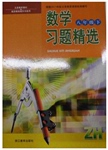题目内容
根据短文内容,从短文后的七个选项中选出能填入空白处的最佳选项。选项中有两项为多余选项。
A major source of teen stress is school exams, and test anxiety is not uncommon. When you recognize your teen is under stress, how can parents help your teen stay calm before an exam? Be involved. Parents need to be involved in their teen’s work. 1._ What they look for is your presence — to talk, to cry, or simply to sit with them quietly. Communicate openly with your teen. Encourage your teen to express her worries and fears, but don’t let them focus on those fears.
Help them get organized. 2. Together , you and your teen can work out a time—table in which she can study for what she knows will be on the test.
Provide a calm setting. Help your teen set up a quiet place to study and protect his privacy. Give them a nutritious diet. It is important for your teen to eat a healthy, balanced diet during exam times to focus and do her best. 3. If this happens, encourage your teen to eat light meals or sandwiches. A healthy diet, rather than junk food, is best for reducing stress.
4. Persuade your teenager to get some sleep or do something active when she needs a real break from studying. Making time for relaxation, fun, and exercise are all important in reducing stress. Help your teen balance her time so that she will feel comfortable taking time out from studying to spend time with friends or rest.
Show a positive attitude. 5. Your panic, anxiety and blame contribute to your teen’s pressure. Make your teen feel accepted and valued for her efforts. Most importantly, reassure your teen that things will be all right , no matter what the results are.
A. A parent’s attitude will dictate their teen’s emotions.
B. Exam stress can make some teens lose their appetite.
C. They will only make the situation worse.
D. Encourage your teen to relax.
E. The best thing is simply to listen.
F. Help your teen think about what she has to study and plan accordingly.
G. Your teen may also make negative comments about themselves
 习题精选系列答案
习题精选系列答案
